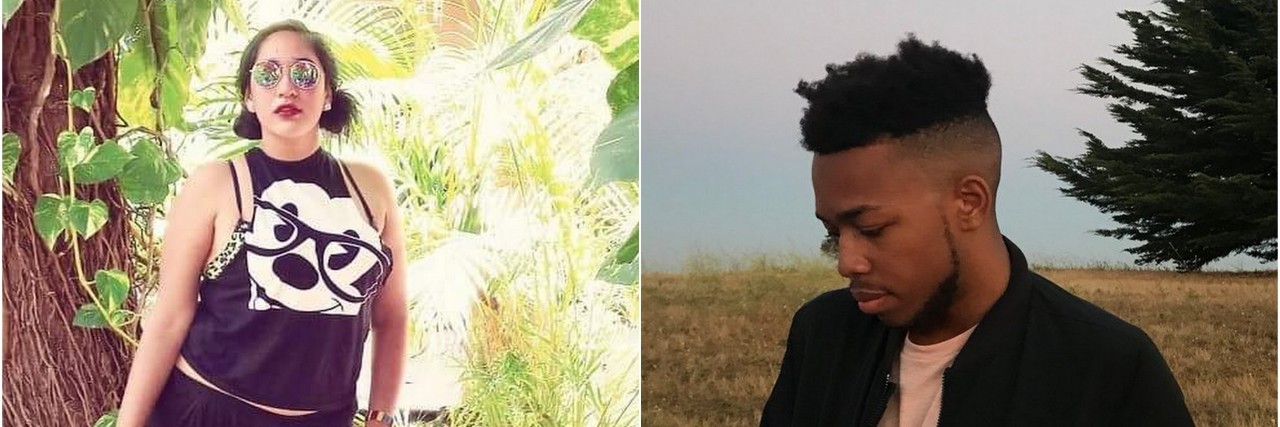People Are Sharing Their Photos to Teach Others What Invisible Disabilities Really Look Like
There’s no way to “tell” that someone has a disability, and many disabilities are completely invisible — however, based on the number of times people with invisible disabilities experience judgment and skepticism, not enough people realize this.
That was the inspiration behind the #InvisiblyDisabledLooksLike hashtag, which was started by disability activist Annie Segarra. To mark the end of Invisible Disabilities Week, an awareness week founded by the Invisible Disabilities Association, on Sunday, Segarra posted a tweet inviting people to share photos.
It's the end of #InvisibleDisabilitiesWeek and I welcome people to post their pics with: #InvisiblyDisabledLooksLike
— Annie Segarra ????️????♿ (@annieelainey) October 23, 2017
Segarra told The Mighty that as an ambulatory wheelchair user with Ehlers-Danlos syndrome and comorbid conditions like chronic pain and dysautonomia she’s in a “blurry middle ground” in which going without mobility aids for even a moment leads others to assume she’s faking her disability or getting better simply because they don’t think she “looks disabled.”
“As I’ve started losing abilities I’ve started receiving similar comments, from ‘You know if you just lost some weight you probably wouldn’t need that wheelchair’ (a mixture of fat antagonism and ableism) because they saw me stand up and take my wheelchair out of the trunk of my car, to hearing someone talk about me to their child, ‘God, will punish her for playing around in that thing’ referring to an electric shopping cart at the supermarket,” Segarra said.
“I started #InvisiblyDisabledLooksLike in hopes of raising awareness that disability is diverse and it won’t always look as you expect it to, but it doesn’t make one’s disability any less valid.”
Segarra shared her own photo to start things off:
EDS, Chronic Pain (Joint, Muscle, Nerve, Migraine) Neurodivergent, Pulmonary/Cardiovascular issues, HoH, etc.#InvisiblyDisabledLooksLike pic.twitter.com/Q7HWQOcpQ1
— Annie Segarra ????️????♿ (@annieelainey) October 23, 2017
Since then, thousands of people have used the hashtag, with many sharing their own photos and explaining how their disability affects them, even when others don’t believe they’re “really” disabled.
DEAF pic.twitter.com/UGoQcwc4pa
— Nyle DiMarco (@NyleDiMarco) October 24, 2017
#InvisiblyDisabledLooksLike 2 metal rods drilled to my spine, a 15 inch scar down my back, and 5 years of back pain & endless teasing pic.twitter.com/z9XnuseFJx
— ☆ kai ruh ☆ (@queencyrahh) October 24, 2017
#InvisiblyDisabledLooksLike deaf in one ear, low vision, clinical depression and anxiety. pic.twitter.com/tt7gakeWjp
— kells ♡ nicøle????✌️ (@softestedges) October 23, 2017
#InvisiblyDisabledLooksLike being denied medical attention because you don't 'seem' to be in crippling pain @ the ER.#sicklecellstrong pic.twitter.com/STbVn6mQXu
— dre (@no_gradient) October 23, 2017
My Spina Bifida is physical but often presents as invisible. My Chairi Malformation is invisible. #InvisiblyDisabledLooksLike pic.twitter.com/pqItrxlsdP
— Andrea Lausell (@AndreaLausell) October 23, 2017
Fibromyalgia.
Sciatica.
Anxiety.
Depression. pic.twitter.com/ykH4UFWbKm— Ashleigh Shackelford (@ashleighthelion) October 25, 2017
#InvisiblyDisabledLooksLike metal rod&screws????, Fibromyalgia, &Joint Hypermobility-scowled at when sitting???? though I'd still give you my seat pic.twitter.com/F2DpLDp3po
— Si (@Shaira_Hassan) October 25, 2017
Because ppl still gasp in shock and suspicion when they realize I can also stand and even walk sometimes ????#InvisiblyDisabledLooksLike #♿️ pic.twitter.com/AGFs6iTCwQ
— Rachel Anne (@hotpinksun) October 24, 2017
Autistic & ADHD since forever, mostly anxious (that second photo), usually depressed.
& I can't see anything in photo #1 btw. I'm legally blind & have been since high school. pic.twitter.com/QIJo40TAj0
— PakiAutist(OnHiatus) (@Huzaahmed) October 23, 2017
Segarra said she always thought the idea of disability having a specific look was ridiculous, and that she hopes more awareness will lessen the prejudice people with non-apparent disabilities experience.
“Disability is incredibly diverse and is often not recognizable just by looking at someone,” she said.

